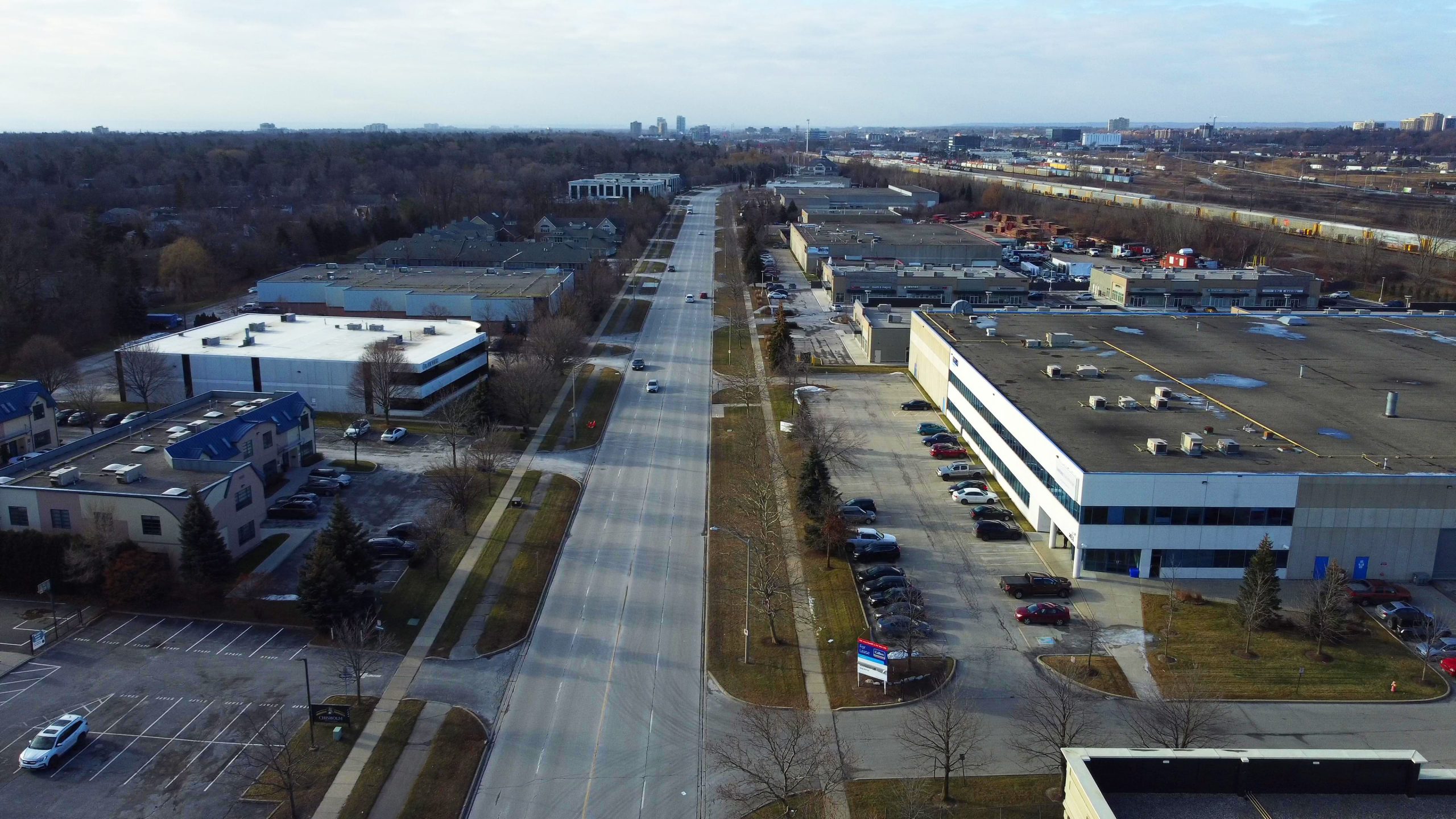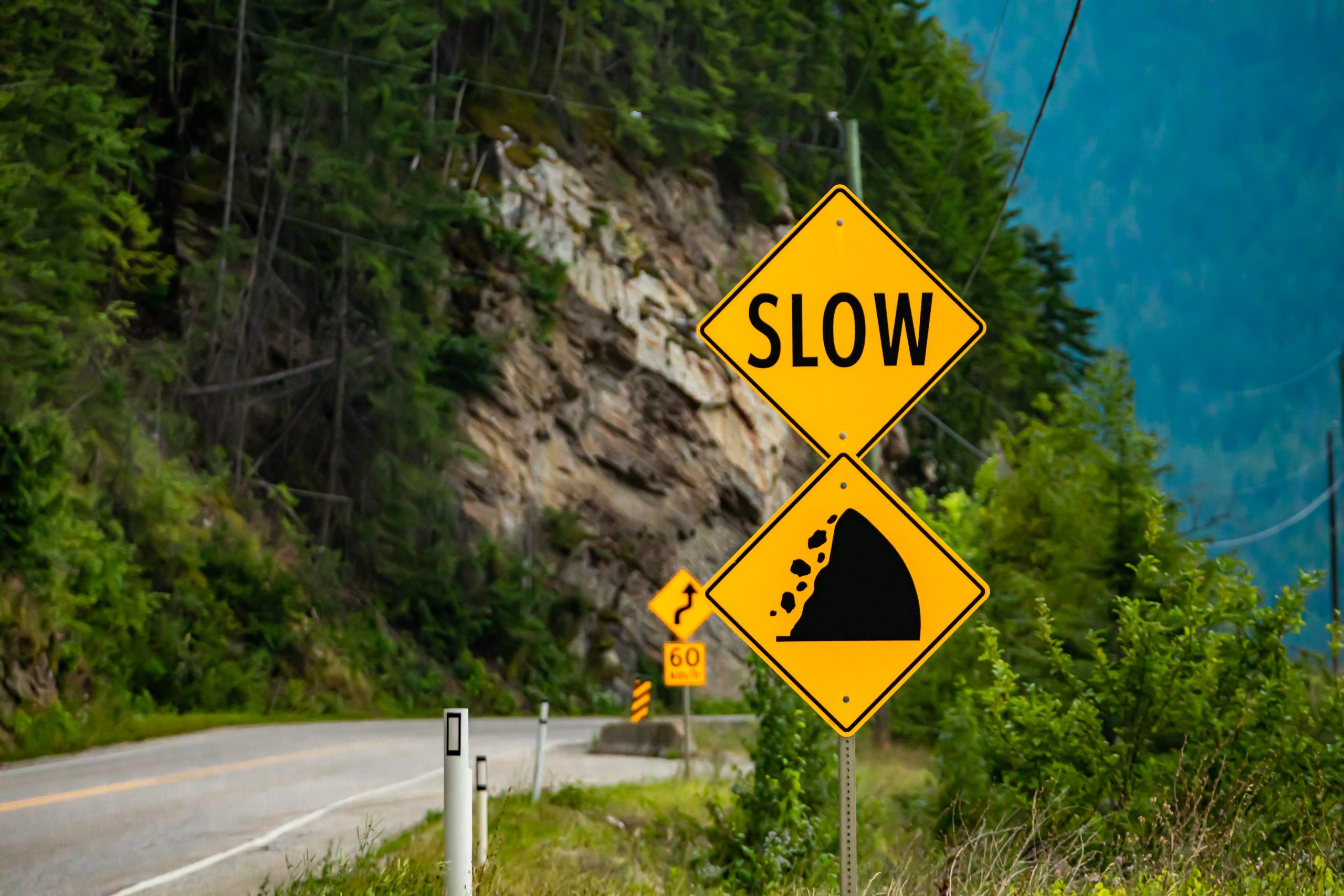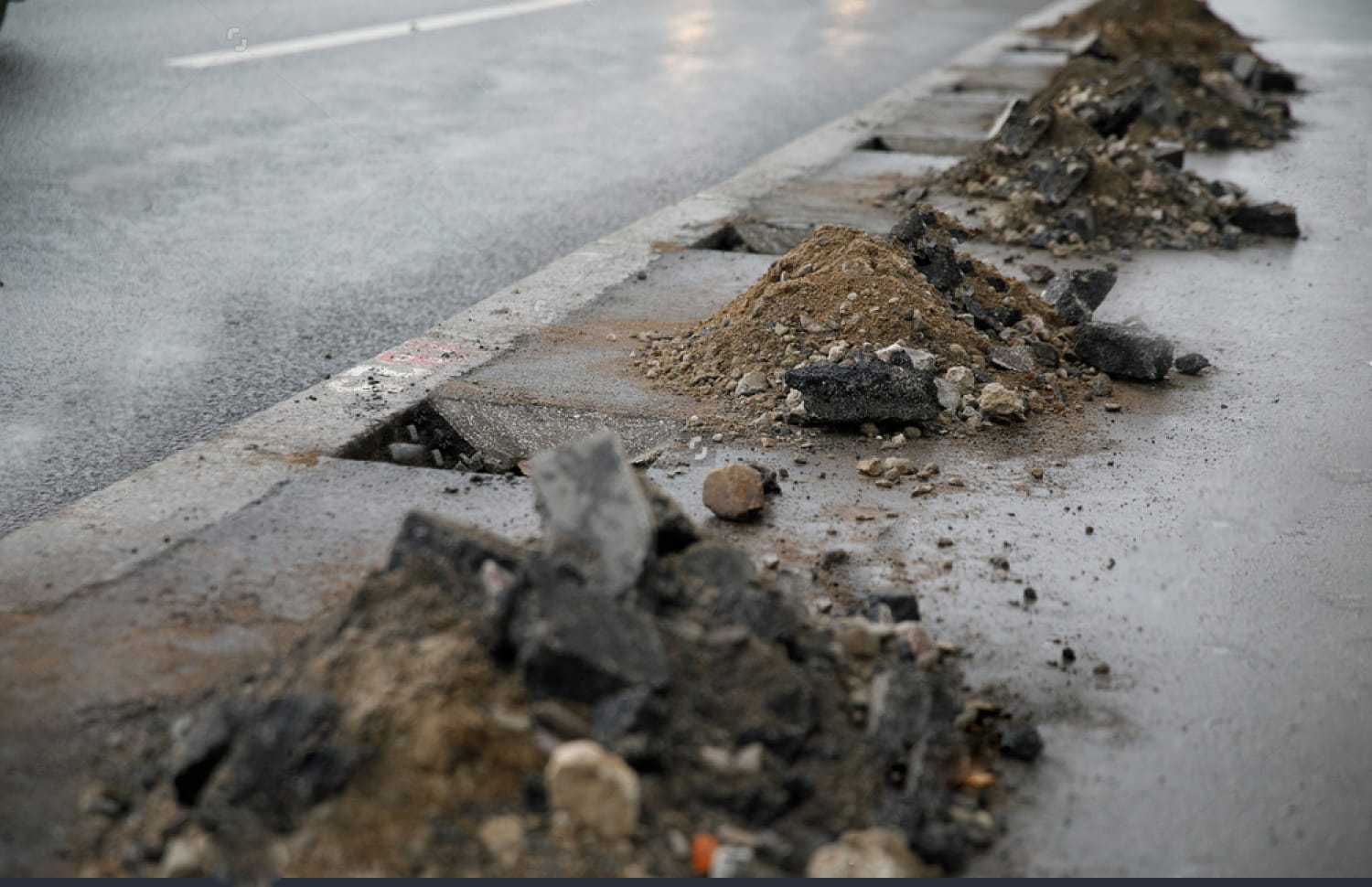
NEW in 2025: Course fees now include a complimentary meal plan (breakfast, lunch, & breaks).
Introduction to Plan Reading and Contract Interpretation guides you through the relevant data found in various engineering documents then reviews the components of a municipal contract. Using the information, you work through practical examples in applying the data to the administration of construction contracts.
Course Content
• Symbols and abbreviations on plan views
• Symbols and abbreviations on profile views
• Existing site conditions
• Plan vs profile drawings
• Elevation and grade (including calculations)
• Specialized information and instructions
• Environmental contract components
• Contract elements and content
• Bonds, insurance and method payment
• Information for bidders
• Case studies based on actual projects
• Roles of Inspectors
Who Should Attend
Road supervisors, inspectors, lead hands, forepersons, and any personnel directly involved in the administration of construction contracts.
Accreditation
This course is recognized by:
- This course qualifies as a “specialized course” for the Association of Ontario Road Supervisors (AORS) Certified Road Supervisors – Intermediate level (CRS-I)
certification program.
- This course will count towards the OACETT continuing professional development requirements. Contact cpd@oacett.org if you have any questions.
- The Engineering Institute of Canada awards 2 Continuing Education Units to this course.

NEW in 2025: Course fees now include a complimentary meal plan (breakfast, lunch, & breaks).
In Manageing Human Resources, you will learn what the human resources functions are and how managers and supervisors can apply them in supporting operational goals while balancing staff concerns, collective agreements and legislative compliance.
Course Content
- Recruitment & Selection
- Legislation
- Labour Relations
- Progressive Discipline
- Worker’s Compensation
- Employee Assistance
- Developing a Healthy Workplace Culture
- Training & Professional Development
- Succession Planning
- Risk management related to personnel issues
- Human rights
- Harassment
Who Should Attend
Municipal supervisors, managers, and future supervisors.
Accreditation
This course is recognized by:
- This course or Effective Management is a mandatory requirement for the Association of Ontario Road Supervisors (AORS) Certified Road Supervisors – Intermediate level (CRS-I) certification program.
- This course may be used for the technical specialist program only. Point Value = 5
- The Engineering Institute of Canada awards 2 Continuing Education Units to this course.

NEW in 2025: Course fees now include a complimentary meal plan (breakfast, lunch, & breaks).
PLEASE NOTE: For those who require certification to serve on Joint Occupational Health and Safety Committees, PSHSA offers another course that meets the requirements of Part 1 JH&SC certification (Basic Certification).
An overview of occupational health and safety issues and workplace hazards related to Public Works and Roads Departments and how these hazards may cause injury or illness. Legislative requirements as well as best practices will be discussed with an emphasis on recognizing and effectively controlling these sector specific hazards.
Course Content
- Legislation, regulations and enforcement programs
- Confined space entry
- Personal protective equipment and Workplace Hazardous Materials Information System
- Trenching
- Traffic protection
- Fall protection
- Workplace inspections and investigations
- Buyers of service and liability
- Electrical safety
- Joint Health and Safety Committees
- Hazard recognition, assessment and control
Who Should Attend
Road supervisors, forepersons and other personnel involved with supervision in a municipal setting.
Accreditation
This course is recognized by:
- This course is a mandatory requirement for the Association of Ontario Road Supervisors (AORS) Certified Road Supervisors – Intermediate level (CRS-I) certification program.
- This course may be used for the technical specialist program only. Point Value = 5
- The Engineering Institute of Canada awards 2 Continuing Education Units to this course.

NEW in 2025: Course fees now include a complimentary meal plan (breakfast, lunch, & breaks).
Municipal Legislation introduces you to municipal law in general, as well as specific issues related to their legal obligations as road supervisors.
Course Content
- Municipal law
- Open and closed local government
- Occupiers and trespassers
- Civil litigation
- Local government ethics
- Trees
- Bridge matters
- Inspections and investigations
- Mail receptacles on road allowances
- Roads
- Contracts, bonding and insurance
- Labour and employment law
- Drainage: municipal rights and obligations
Who Should Attend
Road supervisors, forepersons, and other personnel involved with supervision in a municipal setting.
Accreditation
This course is recognized by:
- This course qualifies as an elective Tech/ Management course for the Association of Ontario Road Supervisors (AORS) Certified Road Supervisors – Senior level (CRS-S) certification program
- This course may be used for the technical specialist program only. Point Value = 5
- The Engineering Institute of Canada awards 2 Continuing Education Units to this course.

NEW in 2025: Course fees now include a complimentary meal plan (breakfast, lunch, & breaks).
 As an entry level survey program, you will be introduced to conventional methods of construction survey work. The program will include: levelling, checking grades, setting grades, calculating % grades, and a basic review of field pick up on a typical road requiring reconstruction. You will also be introduced to basic surveying calculations applicable for general construction projects in addition to a review of total station and GPS surveying for construction projects.
As an entry level survey program, you will be introduced to conventional methods of construction survey work. The program will include: levelling, checking grades, setting grades, calculating % grades, and a basic review of field pick up on a typical road requiring reconstruction. You will also be introduced to basic surveying calculations applicable for general construction projects in addition to a review of total station and GPS surveying for construction projects.
Course Content
- Overview of survey equipment
- Construction layout and procedures
- Use of transit and level
- Establishing benchmark loops
- Overview of total station surveying
- Pre-engineering survey fieldwork
- Survey calculations for road layout and construction/inspection activities

Who Should Attend
Supervisors involved with maintaining and rehabilitating short sections of road, in rural or urban settings.
Accreditation
This course is recognized by:
- This course qualifies as a “specialized course” for the Association of Ontario Road Supervisors (AORS) Certified Road Supervisors – Intermediate level (CRS-I) certification program.
- This course may be used for the technical specialist program only. Point Value = 5
- The Engineering Institute of Canada awards 2 Continuing Education Units to this course.

The MEA’s OPS for Municipal Infrastructure Course is an intensive, in-person training that provides a thorough understanding of Ontario Provincial Standards (OPS) for Roads and Public Works Instructure. This course equips participants with essential knowledge of OPS governance, its benefits, and the critical role OPS plays in municipal and provincial infrastructure projects.
Course Content: Participants will learn to apply OPS standards to build better contracts and manage public works projects effectively. Through interactive group exercises, case studies, and practical scenarios, this course covers:
- Introduction to OPS: Understanding the history, governance, and benefits of harmonized OPS standards for municipal infrastructure.
- Contract Development: Exploring the essential components of public works contracts and how OPS enhances contract preparation, efficiency, and risk management.
- Project Framework: Utilizing OPS for planning, delivery, inspection, and closeout of linear infrastructure projects, including times and materials management (OPSS.PROV.127).
- Progress Payments & Dispute Resolution: Managing contract administration, payment processes per the Construction Act’s Prompt Payment concept, and resolving disputes with OPS General Conditions (MUNI.100).
- Project Closeout: Best practices for contract closeout and releasing holdbacks.
Who Should Attend? This course is ideal for public and private sector staff involved in the design, delivery, and contract preparation of infrastructure construction projects. Also suitable for operations staff responsible for the maintenance and repair of municipal transportation, water, wastewater and drainage infrastructure. Participants will gain tools to apply OPS in building efficient specifications, mitigating legal and financial risks, and achieving project success.
Accreditation
This course represents up to 14 CPD/CEU hours (approx.) and is an eligible course requirement towards achieving the Municipal Infrastructure Training (MIT) Certification Program by MEA/Good Roads.
Course fees include a complimentary meal plan (breakfast, lunch, & breaks).

NEW in 2025: Course fees now include a complimentary meal plan (breakfast, lunch, & breaks).
Overview of Municipal Road Design and Construction reviews the processes and stages of road construction, from initial evaluation of needs, to preliminary design through to construction and project completion. Examples will be used to illustrate the stages of approval, design, and construction of both rural and urban municipal road projects.
Course Content
- Behind the scenes
- Setting the stage
- Engineering material options
- Introduction to engineering surveying
- Design considerations
- Design delivery options
- Design and construction processes
- Components of contract documents
- Contract administration
- The asset management connection
Who Should Attend
Individuals involved or interested in the design and construction of a road.
Accreditation
This course is recognized by:
- This course qualifies as a Tech/Management credit for the Association of Ontario Road Supervisors (AORS) Certified Road Supervisor – Senior (CRS-S) certification program.
- This course may be used for the technical specialist program only. Point Value = 5
- The Engineering Institute of Canada awards 2 Continuing Education Units to this course.

NEW in 2025: Course fees now include a complimentary meal plan (breakfast, lunch, & breaks).
Roadway Management focuses on understanding responsibilities and best practices related to managing and maintaining the road and related infrastructure within the public right of way including current regulations and the latest technologies and best practices.
Course Content
- Management and Leadership
- Programs and Budgets
- Collective Agreements
- Balancing Service Delivery
- Contract Management
- Emergency Management
- Weather
- Winter Management
- Storm Water Infrastructure
- Road Preservation and Rehabilitation
- Signs and Pavement Markings
- Right of Way Management
- Multi-Modal Transportation
- Asset Management
- Risk Management
- Road Patrols
- Regulations
Who Should Attend
Those who wish to pursue or currently are in leadership roles and desire to have a better understanding of managing road maintenance programs.
Accreditation
This course is recognized by:
- This course qualifies as a “specialized course” for the Association of Ontario Road Supervisors (AORS) Certified Road Supervisors – Intermediate level (CRS-I) certification program.
- This course may be used for the technical specialist program only. Point Value = 5
- The Engineering Institute of Canada awards 2 Continuing Education Units to this course.

Signs and Lines offers practical experience in using Ontario Traffic Manuals 5, 6 & 11. You will learn, through participation in group activities how signs and lines assist drivers as they travel from their point of origin to their destination. You will return to your municipality with an understanding of how these manuals work together plus a list of best practices to help minimize risk and defend the municipality in an insurance claim.
Course Content
- Principles of Positive Guidance
- Influencing driver safety
- Sign manufacturing & Three Speed Triangle
- Best practices for ordering road signs
- MMS Requirements for Signs
- Retroreflectivity & Reflective Sheeting
- Sign Management Program
- Regulatory Signs (OTM 5)
- Warning Signs (OTM 6)
- Pavement, Hazard and Delineation Markings (OTM 11)
- Collision investigations
Who Should Attend
Decision makers and individuals responsible for the selection and placement of regulatory signs, warning signs, and the pavement, hazard and delineation markings.
Accreditation
- This course qualifies as a “specialized course” for the Association of Ontario Road Supervisors (AORS) Certified Road Supervisors – Intermediate level (CRS-I) certification program.
- The Engineering Institute of Canada awards 2 Continuing Education Units to this course.
This course can be completed online. Please visit https://goodroads.ca/program-detail/?program_area=olc for more information.

Introduces you to soils and paving materials, their classification, properties, and application.
Course Content
- Soils and aggregates
- Bituminous fundamentals and mix designs
- Routing and sealing
- Hot mix paving
- Expanded asphalt
- Cold-In-Place recycling
- Concrete paving
- Surface treatment and new developments (e.g. fibermat, chip seals, fog seals)
- Hot-In-Place paving
- Pavement management
- Reclamite
Who Should Attend
Road supervisors and personnel directly involved in the maintenance and construction of municipal roads.
Accreditation
This course is recognized by:
- This course qualifies as a “specialized course” for the Association of Ontario Road Supervisors (AORS) Certified Road Supervisors – Intermediate level (CRS-I) certification program.
- This course may be used for the technical specialist program only. Point Value = 5
- The Engineering Institute of Canada awards 2 Continuing Education Units to this course.

















